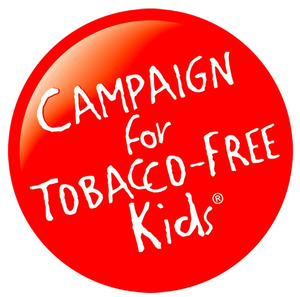BANDAR SERI BAGAWAN, Brunei, Aug. 26, 2013 /PRNewswire-USNewswire/ -- Statement of Susan M. Liss Executive Director, Campaign for Tobacco-Free Kids:
(Logo: http://photos.prnewswire.com/prnh/20080918/CFTFKLOGO)
The Campaign for Tobacco-Free Kids strongly supports the proposal offered today by the government of Malaysia, in negotiations for the Trans-Pacific Partnership (TPP) trade agreement, that would protect the sovereign rights of participating nations to adopt measures to reduce tobacco use.
Malaysia formally introduced the tobacco language today in Brunei, where 12 countries including the United States and Malaysia are conducting the 19th round of TPP talks.
The Malaysian proposal provides for a complete "carve-out" of tobacco control measures from the TPP agreement, preventing the tobacco industry and its allies in governments from challenging such measures as a violation of the agreement. This proposal is appropriate and necessary to stop the tobacco industry from continuing to challenge tobacco control measures as trade violations, a tactic the industry increasingly has used around the world to fight efforts to reduce tobacco use.
The complete carve-out proposed by Malaysia is based on the recognition that tobacco products are uniquely harmful. They kill consumers when used as intended and are the number one case of preventable death around the world. A total carve-out of tobacco from the TPP would acknowledge the global consensus that nations must act to reduce tobacco use, pursuant to the world's only public health treaty, the Framework Convention on Tobacco Control. Trade agreements should not undermine nations' efforts to reduce tobacco use and save lives.
We applaud the government of Malaysia for providing strong leadership in the global fight against the tobacco epidemic and urge the U.S. and other TPP nations to support the Malaysian proposal. We also applaud the Malaysian tobacco control community for their strong advocacy to convince the Malaysian government to offer this proposal.
Now that Malaysia has offered this proposal, we urge the United States to work with Malaysia and others to support a proposal that will provide real protection for tobacco control measures, rather than press for its own language. The latest proposal from the United State Trade Representative (USTR), also formally offered today, represents a retreat from an earlier U.S. proposal and fails to prevent tobacco control measures from being challenged as violations of trade agreements. This latest USTR proposal simply states that tobacco control measures are included in a provision of the General Agreement on Tariffs and Trade (GATT) that recognizes nations' authority to enact health and safety measures. It also directs public health officials from the countries that are party to the trade agreement to consult each other before launching tobacco-related trade challenges, but would not prevent such challenges from moving forward. The earlier USTR proposal would have provided a "safe harbor" for tobacco control measures under the TPP agreement and, according to USTR, "explicitly recognize the unique status of tobacco products from a health and regulatory perspective."
The tobacco industry and its allies in governments increasingly use trade and investment agreements to challenge legitimate tobacco control measures, and have done so specifically against laws adopted in the U.S., Australia, Uruguay, Ireland, Norway and Turkey. Indonesia filed a World Trade Organization challenge to a U.S. prohibition on fruit- and candy-flavored cigarettes. Tobacco companies and several countries have filed trade challenges to Australia's law requiring that cigarettes be sold in plain packaging, while Philip Morris International has used an investment agreement to challenge Uruguay's tobacco control laws, including its requirement for large, graphic health warnings.
These costly challenges are aimed not only at defeating tobacco control measures, but also at discouraging governments from enacting them in the first place. The Malaysian proposal would prevent such industry challenges under the TPP, whereas the USTR proposal would not.
The tobacco proposals are scheduled to be discussed further at working group meetings in September.
SOURCE Campaign for Tobacco-Free Kids
WANT YOUR COMPANY'S NEWS FEATURED ON PRNEWSWIRE.COM?
Newsrooms &
Influencers
Digital Media
Outlets
Journalists
Opted In





Share this article